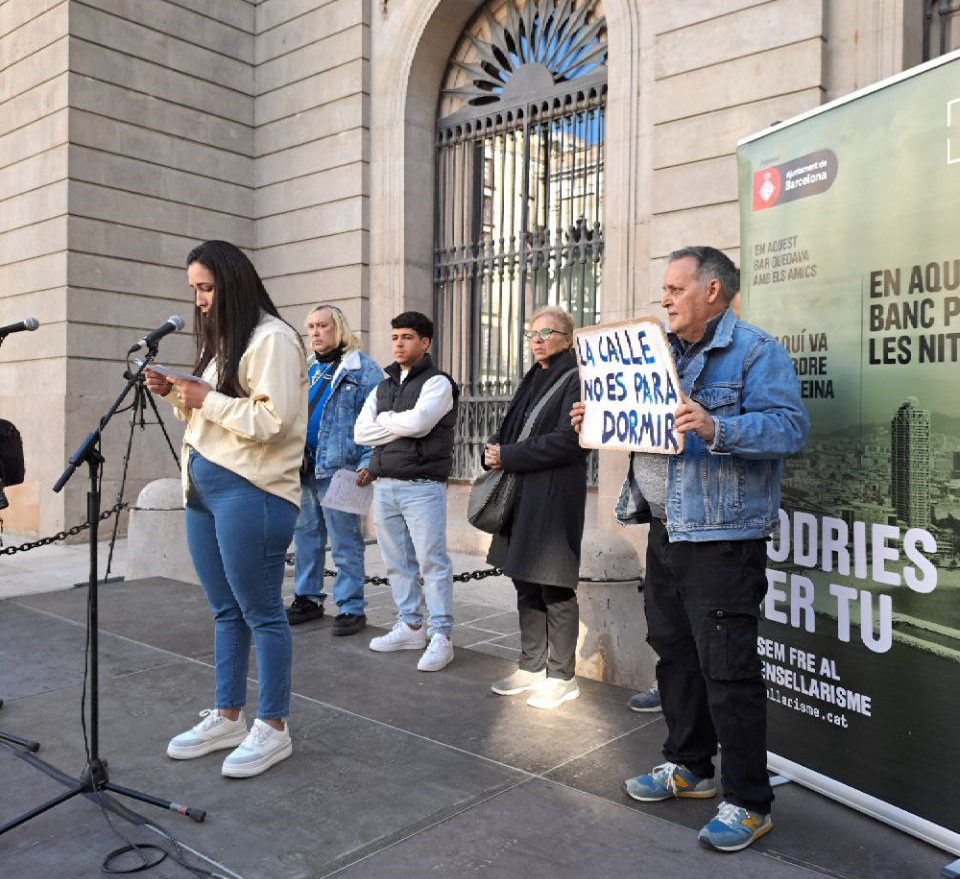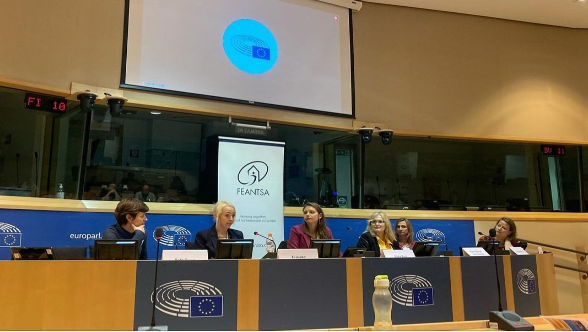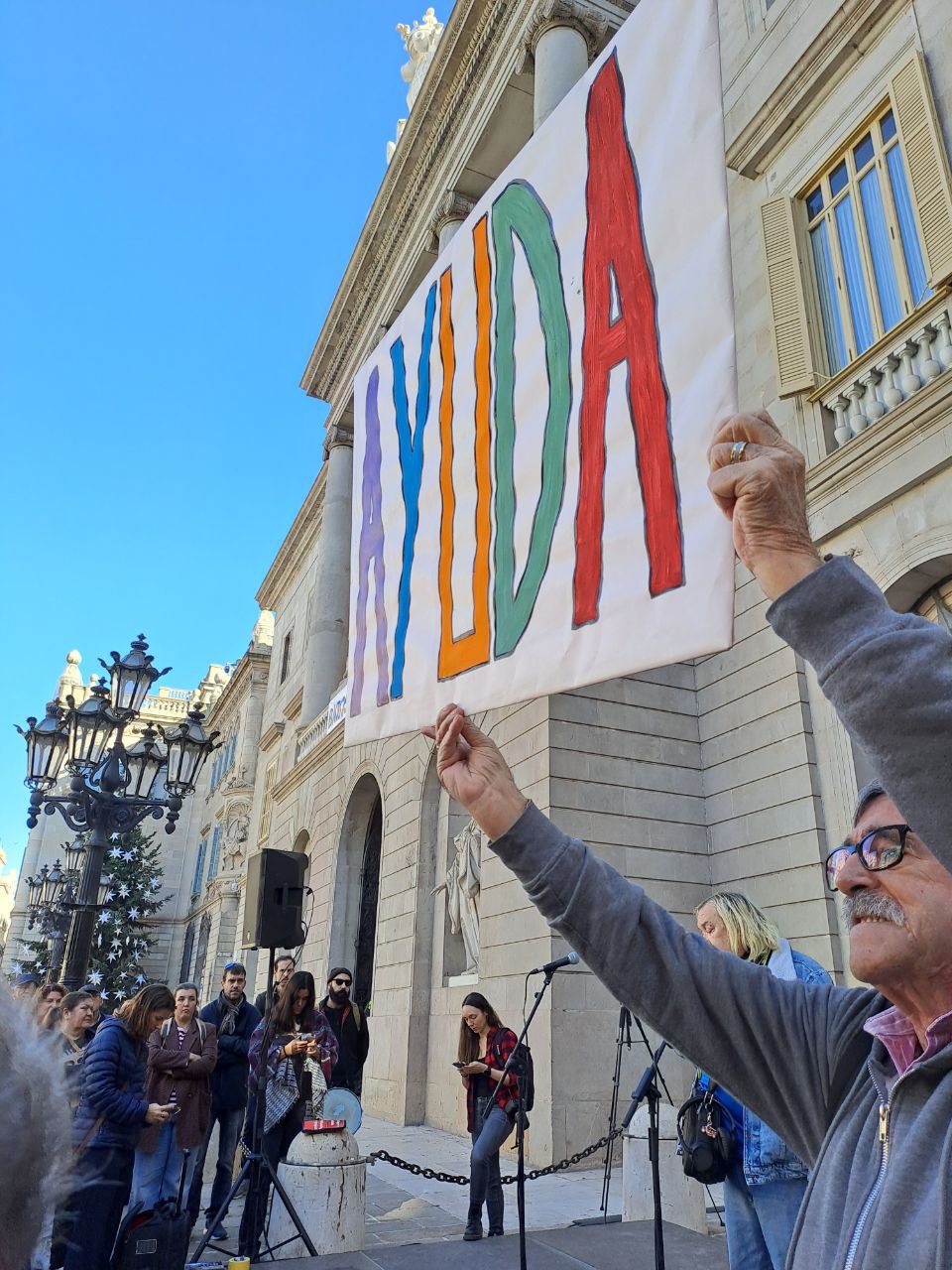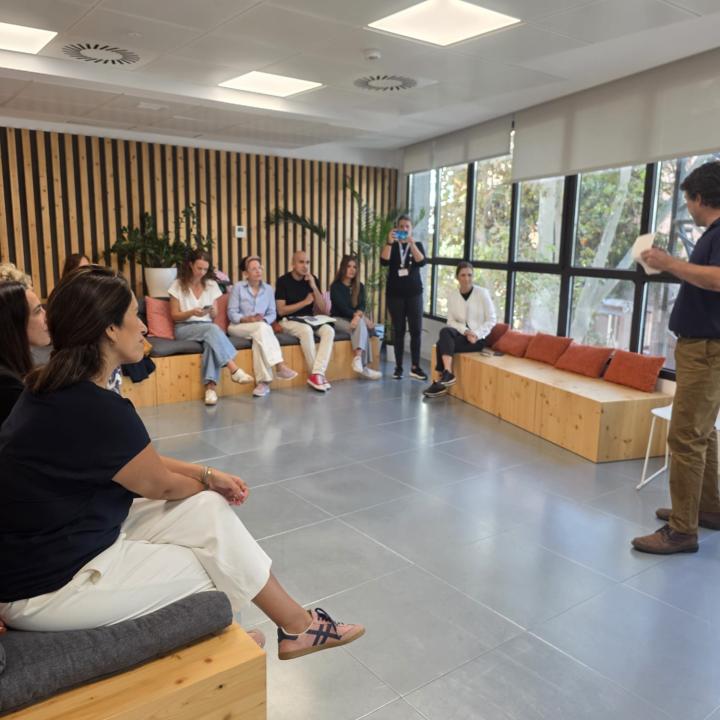The Barcelona Homeless People Care Network (XASPLL), made up of 39 entities and the city council, is organizing a protest action in Plaça Sant Jaume on the occasion of the European Homeless Day.
Nearly 29,000 people were treated in centers or services for people in a situation of homelessness in 2022 in Spain, according to the latest data published by the National Institute of Statistics. This represents 24.5% more people than a decade earlier, when the last count was made throughout the state. However, according to data from Cáritas, there could be more than 42,000 people in a situation of homelessness if those living on the street are also taken into account, where life is not easy at all.
Faced with this reality, the Barcelona Homeless People Care Network (XASPLL), made up of 39 entities and the city council, has carried out a protest action in Plaça Sant Jaume to demand the urgent resumption of the bill on transitional and urgent measures to address and eradicate homelessness, which began to be worked on in the last legislature.
The action, which took place in the context of the European Day of People in Homelessness on 23 November, began with the construction of a human mosaic, which displayed a banner with the slogan “Nobody Homeless”. Then, they turned the canvas, where 1,245 could be read. This is the number of people sleeping on the streets of Barcelona. In addition, there are 260 settlements in the city.

With today's event, the XASPLL also wanted to emphasize how the increase in rental prices has led to a slight reduction in the number of social inclusion apartments, whether shared or individual housing, according to a press release released by the network. In addition, it highlights the need to facilitate the guarantee of income and the processing of benefits for people in a situation of homelessness; as well as registration without a fixed address, as a fundamental right to guarantee access to services and for subsequent processes of settlement.
Life on the streets
"I have been threatened, insulted, humiliated, robbed. Sometimes, I have felt like I was a dog to other people," explains a woman assisted in one of the services that we manage at Suara Cooperativa for people in a situation of homelessness, whose anonymity we are maintaining.
According to INE data, 6,552 women were assisted in homeless services in 2022. Precisely, Anna Domingo, an expert at Suara Cooperativa in the care of people in a situation of homelessness, emphasized the difficulties faced by women living on the streets in a video published on the occasion of 8-M.
“Before living on the streets, 82% of the women in a situation of homelessness assisted by Suara Cooperativa had been victims of physical, psychological or sexual violence,” says Domingo in the video where she adds: “Life on the streets is not easy for them. First of all, because the stigma is greater than in the case of men. For this reason, they lose their support network such as family or friends, which pushes them towards loneliness, exclusion and isolation and the lack of a safe space. This means that most women in a situation of homelessness have suffered an assault.”
Not only women are victims of aporophobia, one of the most silenced hate crimes because the victims are homeless people who do not usually report it. Beyond the attacks, surviving on the street is not easy where they spend the day looking for a safe place to sleep or eat to feed themselves, which, without a doubt, has a direct impact on the physical, mental and/or emotional well-being of these people; as well as contributing to the premature aging of people, according to a recent report published by the XASPLL.
How to support people in a situation of homelessness
At Suara Cooperativa we manage several support services for people in a situation of homelessness, one of which is the Sostre 360º del Maresme for young people between 18 and 25 years old, owned by the Maresme Regional Council. “The most important thing is to cover their basic needs, which is housing. Once these needs are covered, we start working on other things such as documentation, having a residence permit or training,” explains Samia Ouadih, a social educator at this service, where they are also offered legal advice and psychological support.
These services, in which bonds are generated with the people they are cared for. “We share stories, we share worries and, afterwards, there is a lot of emotional burden,” emphasizes Miriam Sanz, who also works as a social educator.
The first thing that needs to be worked on with these people, explains Anna Garcia, an expert in homelessness at Suara Cooperativa, is their emotional well-being and self-esteem, which have often been damaged by the multiple traumatic situations that living on the streets entails. For this reason, García indicates, it is essential to “promote recovery processes taking into account traumatic life events and respect the rhythms of each of the people served”.
Subsequently, it is necessary to facilitate their empowerment so that they do not return to a similar situation. “Reestablish the support network, guarantee their access to stable employment, housing and quality and free training”, García specifies.
The importance of alliances
The care and support of people experiencing homelessness is undoubtedly one of the great challenges we face as a society, which is why it requires us all to work together, civil entities, organizations and administrations, to be able to provide an answer.
For this reason, Suara Cooperativa is part of the European Federation of National Organizations Working with Homeless People (FEANTSA), which met at the beginning of the month in Brussels where the situation of homelessness could be addressed in the European Parliament.

This meeting also served to allow the different European organizations or entities that work with people experiencing homelessness to discuss issues such as the existing stereotypes surrounding the group, the reality of women living on the streets or to learn about success stories of the Housing First project that is being carried out in different European countries.
“I already have a house, but there is not a day that I think that I could sleep on the street again and I am very scared”, says a person who works for Suara Cooperativa in one of the services it manages. People who have been through a situation like this cannot return to homelessness. For this reason, it is necessary to provide more resources to the services where they are served so that they can re-establish their life projects. Also, more public policies are needed to prevent people who cannot afford the high price of rent from being forced to live on the street.
On the occasion of the European Day of People in a situation of homelessness, from Suara Cooperativa we recall that housing is a fundamental right that is included in both the Spanish Constitution, the Charter of Fundamental Rights of the European Union or the Declaration of Human Rights of the United Nations, signed by the Spanish state. Therefore, it is essential to guarantee that all people can have access to a home.




